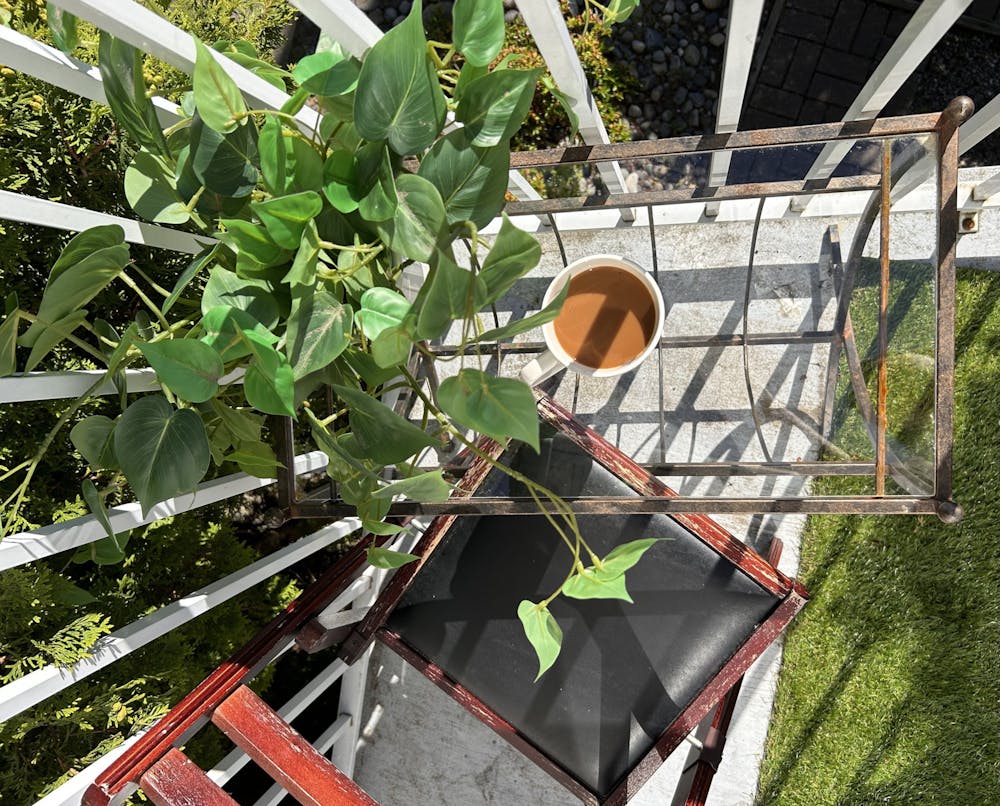You’ve probably heard the phrase “Don’t talk to me until I have my coffee.” Is it overused by Disney adults and ex-Tumblr users? Sure. Does it still apply to me? Unfortunately, yes, it does.
Since I was 15, I’ve started my day with a cup of coffee. Or two, or three. Even in mid-July, I’ll shamelessly pour a hot coffee with some French vanilla creamer.
I didn’t question how much caffeine I was pumping into my body until recently. I spent a couple of days at my girlfriend’s house, whose go-to beverage is a Red 40 flavored energy drink. The lack of coffee in her apartment and the ravaged condition of my bank account led to me taking a three-day break from caffeine.
Despite my approximate six-year streak of regular caffeine consumption, I felt refreshed from my break. Up until then, I refused to go more than 48 hours without a cup of coffee. I was shocked at the tranquility I experienced when I wasn’t voluntarily raising my cortisol levels.
I don’t want to be misleading — I still drink coffee regularly. However, my break taught me a lesson about moderation. There’s no reason why I need to be jumping off the walls 24/7, maybe besides choosing to become a writer as my profession.
No matter how much we refuse to acknowledge it, caffeine is indeed a drug. There are a few reasons why we are quicker to dismiss caffeine as a drug as opposed to other drugs, like nicotine or heroin.
Reykjavik University professor Jack James studies caffeine consumption in Iceland. James said some rationale we may use to disqualify caffeine as a drug is that its effects are mild compared to other drugs. There is no consistent evidence about harmful long-term effects resulting from caffeine consumption and caffeine use is highly socialized.
So what’s the big deal if caffeine hasn’t been shown to cause significant long-term negative health consequences? Caffeine produces a psychostimulant effect, which affects our cognitive functions, including long- and short-term memory and also increases the likelihood of experiencing anxiety. It’s probably safe to say most college students have felt some jitters or anxiety from drinking lots of caffeinated drinks during finals week. If you haven’t, I commend you.
On the other hand, negative physical and cognitive effects can occur as a result of a caffeine withdrawal. If I had a penny for every caffeine withdrawal headache I’ve gotten, I’d go get myself something nice and shiny at the Sehome Dollar Tree.
Sleepiness or lethargy is a common caffeine withdrawal symptom. Western student and Yerba Mate fanatic Shayna Dumont feels extra tired if she doesn’t have the caffeinated tea. She feels generally dependent on caffeine and sometimes feels jittery or anxious after finishing her drink.
“I feel like I need caffeine to start my day,” Dumont said. If that isn’t the truth.
As a college student and a part-time worker, it’s nice to know I can treat myself to a cup of coffee. Feeling in control of what we put into our bodies is empowering, and we all deserve to spoil ourselves sometimes.
With that being said, it’s also easy to get carried away with all the options at our disposal. Caffeinated beverage providers know that too, and boy, do they ever exploit it.
A classic example is Panera’s charged lemonade, which can reach up to 390 milligrams of caffeine in a large cup. Two people died of cardiac arrest after consuming the beverages.
What’s almost equally as shocking is Panera’s reluctance to immediately take the products off the shelf. A Panera employee who wishes to remain anonymous to avoid misconduct said the lemonades were originally self-serve, but after finding out about the first death, upper management simply asked them to move the lemonade to the back of the house and continue selling the product.
The source said Panera employees were instructed to verbally warn customers about the high caffeine content, especially if there are children present. There were also signs up in the store that would describe the nature of the drink.
The source was never notified by upper management about the fatalities that occurred from the charged lemonades. They are not aware if Panera ever collaborated with health professionals whilst dealing with the fatalities or while creating the recipe for the drinks.
Charged lemonades are now off the shelf forever, thankfully. Occurrences like this one are the reason we should be double checking the content in our food and drinks. Tasty drinks are temporary, but our bodies are here to be nourished for the rest of our lives.
We all can definitely use a pick-me-up here and there. However, our little joys in life should be enjoyed in moderation, right? Too much of a good thing isn’t always what we need.
Halle Jordan (she/her) is an opinion news reporter for The Front. She is majoring in Communication Studies. In her free time, she enjoys singing, journaling and spending time with her roommates! Halle can be reached at hallejordan.thefront@gmail.com




![IMG_9055_Original[1].jpg](https://snworksceo.imgix.net/wfw/225b9e60-06a0-4bbd-837f-36435becd1eb.sized-1000x1000.jpg?w=1500&ar=16%3A9&fit=crop&crop=faces&facepad=3&auto=format)

